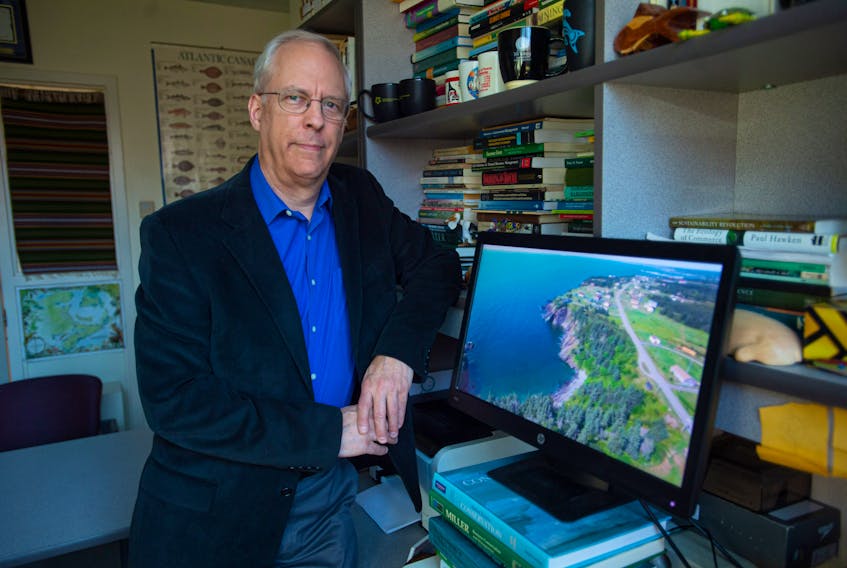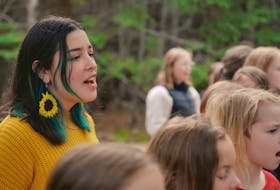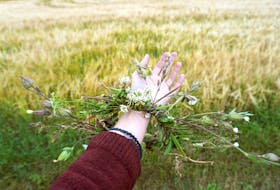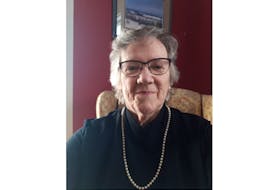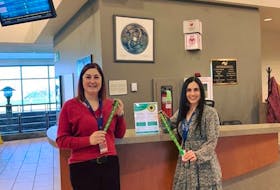Hope for the best, prepare for the worst.
Dr. Tony Charles doesn’t use those exact words in his new documentary Coastal Communities ... At the Ready, but the overall message is clear: by preparing now for the effects of climate change, and doing what we can to mitigate its effects, those who live by the shoreline will find themselves in much better circumstances in the future.
A professor at Saint Mary's University’s School of the Environment and School of Business, and a senior research fellow in environment and sustainability, Charles is the executive producer of Coastal Communities ... At the Ready, produced by Nexus Media, with funding from the university, Marine Environmental Observation, Prediction and Response Network (MEOPRN), and the Community Conservation Research Network (CCRN).
Coastal Communities At The Ready from CCRN on Vimeo.
Viewable for free online, the 13-minute film is a succinct, informative exploration of what we can do as individuals to be ready for the changes brought on by increasingly severe weather conditions as well as suggesting that more can be done to slow the severity of those conditions, provided communities can speak together with one voice.
“I hope one of the messages of the film is that communities can actually do something, if they have the support of higher levels of government,” says Charles, who has a dual interest in conservation and sustainable industry practices as well as lessening the impending impact of climate change.
“The power of a community to actually accomplish something with the right kinds of support is actually quite impressive.”
Coastal Communities ... At the Ready is hosted online by the CCRN, for which Charles is the principal investigator. Based at SMU, the network is engaged in projects around the globe, helping community members find a balance between conservation and pursuing their livelihoods, from Jamaica to the Gambia, as well as across Canada.
For this project, the documentary focuses on the community of Clare, on Nova Scotia’s Acadian Shore, and Tofino, on Vancouver Island, examining the potential hazards that each could face, from tsunamis, earthquakes and rising sea levels on the West Coast to hurricanes and other extreme weather episodes on the East Coast.
“You really have to be looking decades ahead in this day and age,” says Charles. “Parallel to not doing silly things in terms of where you put buildings, there’s also the challenge of reducing the amount of climate change we’re going to be facing.
“Whether you’re on the coast or in some kind of risky environment, thinking about what everybody else is doing in the world to reduce climate change is actually more relevant to us here than maybe other parts of the world that don’t face the same immediate challenges.”

The Acadian Shore fishing community of Meteghan is featured in the new documentary Coastal Communities ... At the Ready, offering information on how to prepare for, and mitigate, the effects of climate change expected in the coming years. - Tony Charles
Coastal Communities ... At the Ready was designed to be a widely accessible project that could be seen worldwide, packing a lot of useful information into its 13-minute running time without overwhelming viewers who aren’t experts in the fields of climate change or emergency preparedness.
Charles feels the film will be instructive to multiple audiences — from oceanside residents of all ages to politicians and decision-makers — who can all glean something of value from it, not just in terms of awareness but also for taking action to save property, lives and livelihoods down the road.
“We give some ideas in the film about what can be done from a coastal community perspective, what the governments can do to support that and what individuals can do whether they’re on the coast or not, to be thinking about adapting to climate change and to these various hazards,” he says.
“We can adapt to more storms from the sea, we can adapt to higher sea levels, but there reaches a point where we can’t adapt as things get worse and worse, which will happen if we do too little in the end.”
Although it’s not laid out explicitly in the film, Charles hopes watching a documentary like Coastal Communities ... at the Ready will inspire individuals to do more to reduce their own carbon footprint, from buying locally grown and produced goods to using public transit. But he also says we should also use our voices to demand further action from those who make the regulations that would help slow the onset of climate change and its impact.
“One of the big things individuals can do is make sure that their governments are doing something,” he explains. “Fundamentally, in a democracy, that’s perhaps the biggest thing we should be doing.
“Regulations about what comes out of smokestacks, and what happens on our coastlines, come from governments. So we need them to do the right thing about what’s causing climate change. ... If we collectively agree that our government should do something and put in regulations that we’re all going to follow, or come up with plans to encourage more renewable energy, then that’s going to have a bigger impact.”

